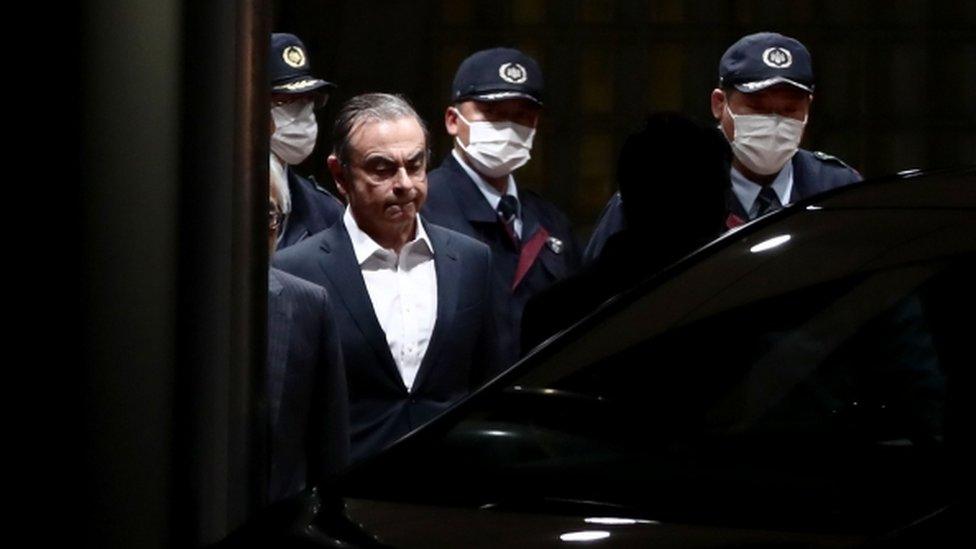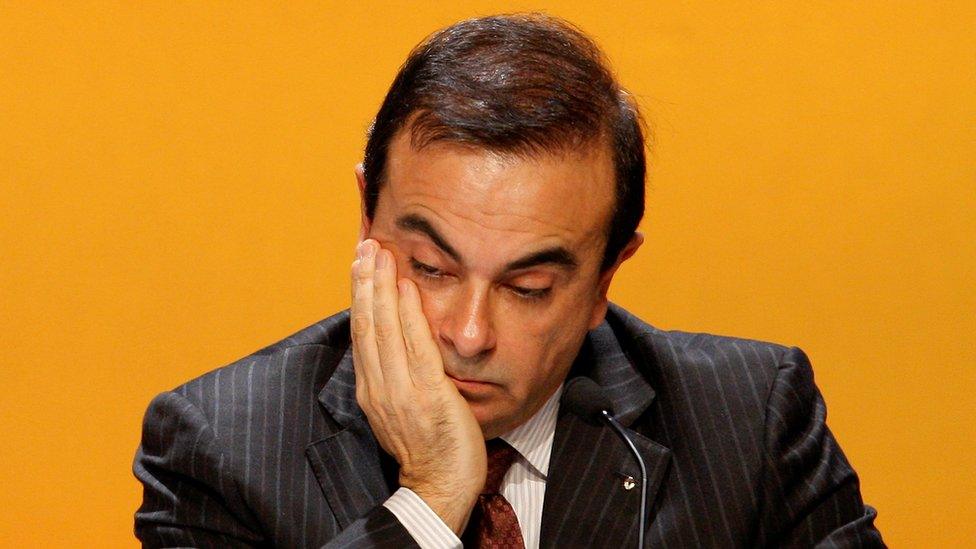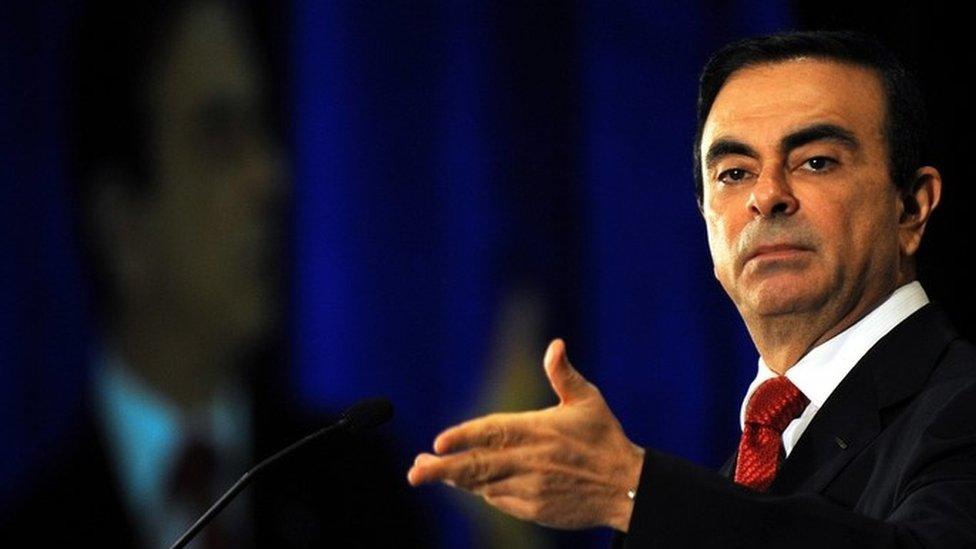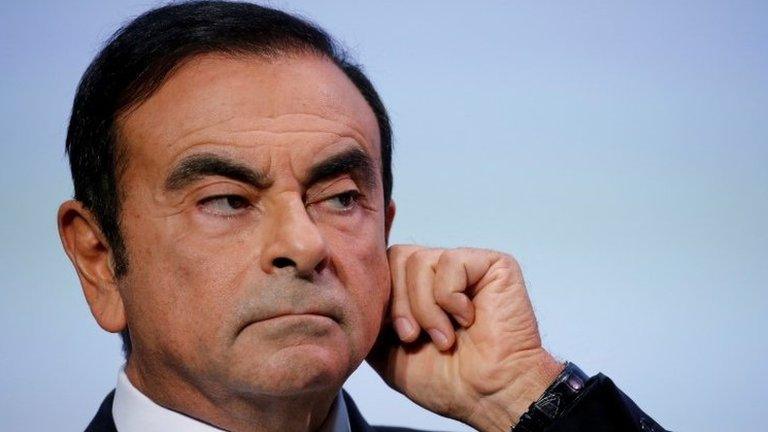Carlos Ghosn: Japan presses for ex-Nissan boss's extradition from Lebanon
- Published

Ghosn was released on bail last April and reportedly spent months planning his escape
Japan has renewed its call for Lebanon to return fugitive ex-Nissan boss Carlos Ghosn.
Lebanon does not typically surrender its citizens but Japan says it can request his extradition.
According to reports, Mr Ghosn walked out of his house on 29 December before boarding a bullet train to Osaka.
He was then reportedly smuggled out of the country in a flight case, usually used to transport musical equipment.
Leaving alone
Mr Ghosn, who ran Nissan until he was arrested on charges of financial misconduct in November 2018, was banned from seeing his wife while on bail.
But, in the final days of 2019, he skipped bail to board a private jet that took him to Turkey before he travelled on to Lebanon, where he is a citizen and where his wife was waiting.
Security cameras caught the 65-year old walking out of his house in Tokyo alone at around 14:30 local time on 29 December, according to Japanese media.
He reportedly then met two men at a Tokyo hotel who escorted him to the city's Shinagawa station where they caught a train to Osaka, Japan's second city.
There, the three men checked into a hotel near Kansai Airport, the reports said.
Mr Ghosn was not seen leaving the hotel but the two other men were caught by security cameras exiting with two big boxes, according to the reports.
The Wall Street Journal said Mr Ghosn was loaded on to the private jet bound for Turkey in a flight case, with holes drilled into the bottom so that the fugitive executive was able to breathe.
The paper said the case was not checked by airport security before it was loaded on to the plane.
'Wrongful methods'
Japan's justice ministry said it did not have records of Mr Ghosn departing Japan.
"It is believed that he used some wrongful methods to illegally leave the country," the country's Justice Minister, Masako Mori, said at a press conference on Monday.
"I have instructed the immigration agency to further tighten the departure process," she added.
Since fleeing, Mr Ghosn has avoided media interviews but he is expected to break his silence at a press conference on Wednesday.
Last week, he issued a short statement that said he alone arranged for his unauthorised departure from Japan and played down speculation that his wife, Carole, and other members of his family helped arrange for him to escape.
Mr Ghosn denies the charges of financial wrongdoing in Japan, instead claiming the country's justice system is "rigged".
- Published3 January 2020

- Published2 January 2020

- Published31 December 2019
